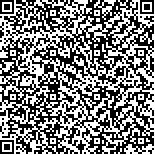本文已被:浏览 837次 下载 378次
投稿时间:2018-03-26 网络发布日期:2018-09-20
投稿时间:2018-03-26 网络发布日期:2018-09-20
中文摘要: 目的 通过检测偏头痛患者的事件相关电位以及神经心理评估,分析其发作持续时间以及发作频率对认知功能的影响。方法 回顾分析2017年1月至12月于神经科就诊的偏头痛患者86例,并选取50例健康者作为对照组。分析比较偏头痛组和对照组的一般临床特征(头痛评分、频率、发作时间、头痛病史)、神经心理评估(焦虑、抑郁)、事件相关电位(潜伏期、波幅)以及蒙特利尔认知功能评分(MoCA),并分析认知功能、事件相关电位与偏头痛患者临床特征的相关性。结果 两组受试者在年龄、性别比例、受教育程度和抑郁自评量表(SDS)评分间无统计学差异(P>0.05);偏头痛患者的焦虑自评量表(SAS)评分明显高于对照组(P<0.05)。偏头痛组患者的MoCA评分明显小于对照组,且其在命名、语言流畅性、抽象思维、延迟记忆以及定向力方面的认知功能评分明显小于对照组(P<0.05);偏头痛患者的P3潜伏期明显长于对照组(P<0.05)。MoCA与头痛发作频率、头痛持续时间存在负相关性(r/i>=-0.48,P<0.05;r/i>=-0.57,P<0.01);认知功能评分项目中,其中命名与头痛频率、头痛持续时间存在负相关(r/i>=-0.37,P<0.05;r/i>=-0.56,P<0.01);抽象思维与头痛频率、头痛持续时间呈负相关(r/i>=-0.49,P<0.01;r/i>=-0.45,P<0.05);延迟记忆、语言流畅性均与头痛持续时间呈负相关(r/i>=-0.29,P<0.05;r/i>=-0.37,P<0.05);P3波幅与SAS评分呈负相关(r/i>=-0.47,P<0.05)。结论 偏头痛会使患者的认知功能下降,而认知功能障碍与头痛发作时间以及发作频率有关。
Abstract:Objective To investigate the influence of onset time and frequency of migraine on cognitive function by way of detection of event-related potentials and neuropsychological assessment in migraine patients. Methods A total of 86 migraine patients who were treated at Department of Neurosurgery from January to December 2017 were selected as migraine group, and 50 healthy people were selected as control group at the same time. The general clinical features (headache score, frequency, onset time, headache history), neuropsychological assessment (anxiety, depression), event-related potential (latency, amplitude) and Montreal Cognitive Assessmet(MoCA) were analyzed retrospectively. The correlation between cognitive function, event-related potentials and clinical characteristics of migraine patients was analyzed. Results There were no significant differences in age, gender radio, education degree and self-rating depression scale (SDS) in two groups (all P>0.05). The self-rating anxiety scale(SAS)in migraine group were significant higher than that in control group (P<0.05). The MoCA in migraine group were significantly lower than that in control group, and in which the scores in the naming, language fluency, abstract thinking, delayed memory and orientation power were significantly lower than those in control group (P<0.05). The latency of P3 in migraine group was significantly longer than that in control group (P<0.05). MoCA was negatively correlated with headache duration and headache frequency (r=-0.48, P<0.05; r=-0.57, P<0.01). In MoCA, naming was negatively correlated with headache frequency and headache duration (r=-0.37, P<0.05; r=-0.56, P<0.01), and abstract thinking was negatively correlated with headache frequency and headache duration (r=-0.49, P<0.01; r=-0.45, P<0.05), and delayed memory and language fluency were negatively correlated with headache duration (r=-0.29, P<0.05; r=-0.37, P<0.05), and P3 amplitude was negatively correlated with SAS(r=-0.47, P<0.05). Conclusion Migraine could cause cognitive impairment, and cognitive impairment could be associated with the timing and frequency of headache attacks.
文章编号: 中图分类号:R 747.2 文献标志码:A
基金项目:内蒙古自治区科技支撑计划项目(2016BA076202)
引用文本:
秦晓云,张占普,窦长武,高乃康.神经心理评估和事件相关电位在偏头痛持续时间与频率和认知功能关系中的评估[J].中国临床研究,2018,31(9):1153-1156.
秦晓云,张占普,窦长武,高乃康.神经心理评估和事件相关电位在偏头痛持续时间与频率和认知功能关系中的评估[J].中国临床研究,2018,31(9):1153-1156.
